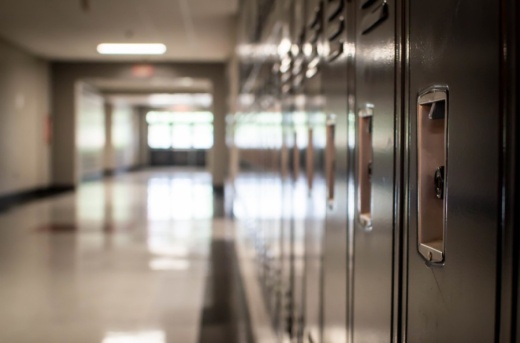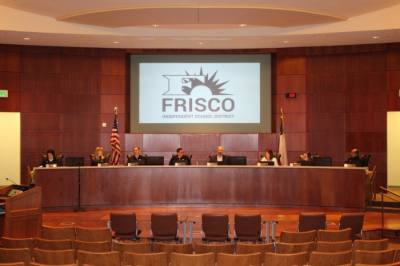District data also show that low-income students, boys, students receiving special education services, and at-risk students are also disciplined at higher rates.
TEA notified the district of the disparities in September after a review of three years of FISD data, according to discussion at the Dec. 14 school board meeting. The state’s finding of “significant disproportionality” requires FISD to review and, if appropriate, revise its policies. The district must also publicly report those policy revisions, according to the TEA.
Erin Miller, chief student services officer for FISD, told the board the district is updating its discipline philosophy altogether.
“We want to change behavior, not punish,” Miller said. FISD wants to move away from the idea of discipline and focus on behavior management, she said. For FISD, Miller said, this means focusing on restorative practices, teachable moments and changing behavior—not punishing students. The district has also been addressing implicit bias as part of this work, Assistant Director of Communications Meghan Cone said.
FISD campuses had a more formulaic approach to discipline before this shift toward behavior management, Cone said. In the past, a fight among students would generally result in three days of out-of-school suspension and three days of in-school suspension at FISD campuses—although this was not a district-wide policy or standard, Cone said.
Miller said the district instead wants to consider the context of each individual situation and each student. The goal is to try to teach students how to behave appropriately in a learning environment—not punish them according to a matrix or formula, she said.
FISD has been working on a new discipline philosophy for a couple years and is developing a new matrix that focuses on behavior management. Cone said the details are still in flux, and the district has not finalized the new matrix.
According to the National Education Association, out-of-school suspensions are the No. 1 predictor of school dropout rates, reliance on social welfare programs, probability of future unemployment and imprisonment.
U.S. Department of Education's Office for Civil Rights data from 2014 show that Black students across the nation are suspended and expelled three times more often than white students.
Miller told the school board that throughout the course of her career as an educator, the concept of discipline in schools has changed. Before, discipline was intended to be punitive.
“This [new philosophy] is very different from my first year of teaching in 1995 in Lubbock, Texas, when the principal called me in because he needed a witness as he paddled a kid,” Miller said.
In recent years, studies have emerged that suggest punitive practices—such as expulsions and out-of-school suspensions—have long-lasting negative effects and are disproportionately applied to Black students. In response, the TEA moved toward a restorative justice approach in 2015. This approach focuses on relationship building, aims to create belonging over exclusion and promotes meaningful accountability—not punishment.
“We need to be looking at discipline differently,” Miller said. “Times have changed, and we need to change with them.”






